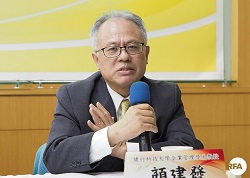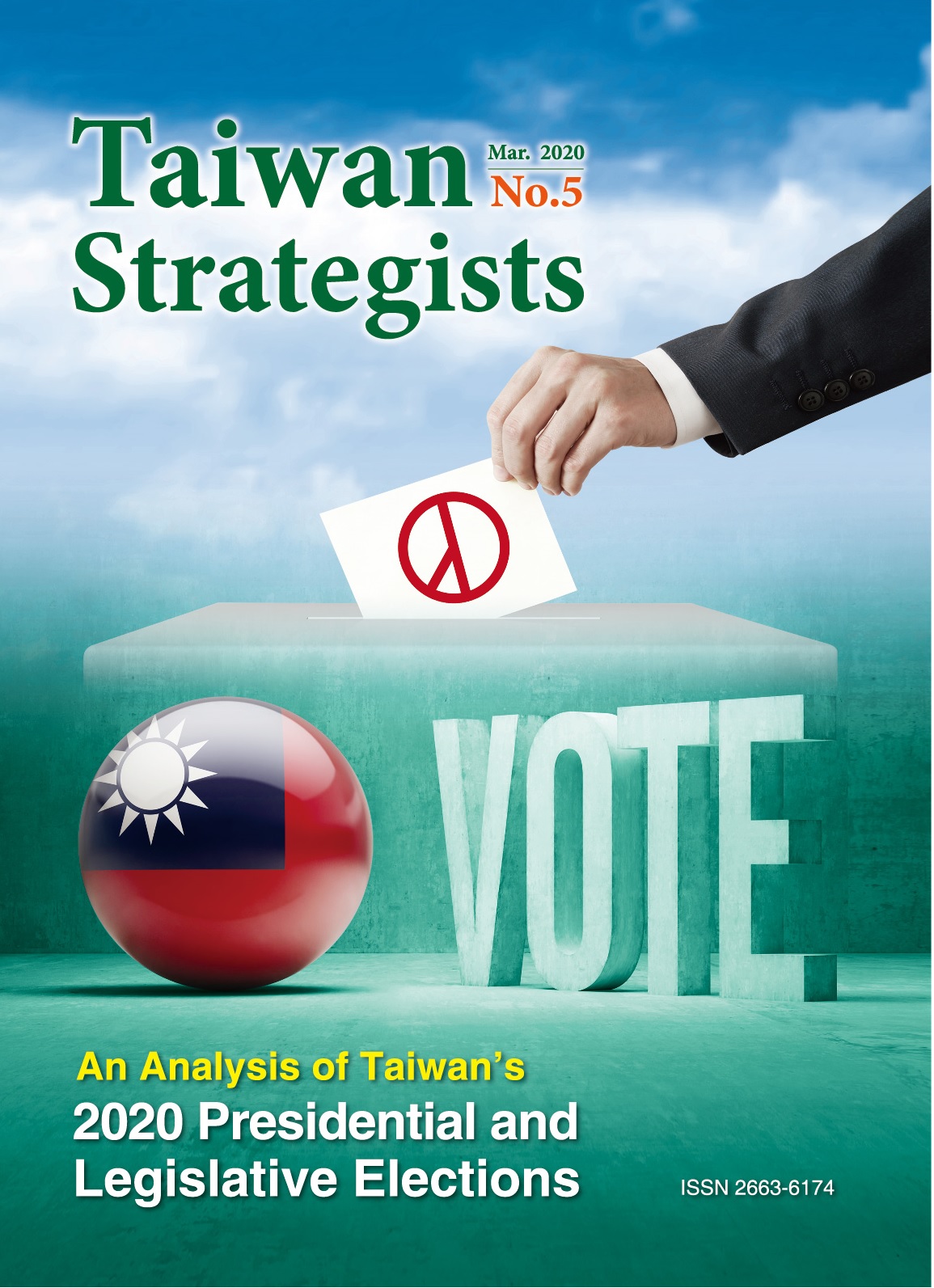An Analysis of Taiwan's 2020 Presidential and Legislative Election
- PDF1.The Post-Presidential Election Prospects for Taiwan’s New Southbound Policy, and Roles in the Indo-Pacific Framework and India-Taiwan Relations.PDF
- PDF2.The Prospects of Cross-Strait Relations after Taiwan’s General Elections 2020.PDF
- PDF3.Changing Party System Analyzing the 2020 Presidential and Legislative Elections.PDF
Taiwan Strategists No. 5 (March 2020)
The Post-Presidential Election Prospects for Taiwan's New Southbound Policy,
and Roles in the Indo-Pacific Framework and India-Taiwan Relations
Professor, Graduate Institute of International Politics
National Chung Hsing University
Associate Professor and Chair
Center for South and Southeast Asia Studies
FLAME University, Pune, India
Taiwan's 2020 Presidential Election results not only granted President Tsai Ing-wen her a second term with a wide margin but also stronger support for the New Southbound Policy (NSP) which aims to promote and deepen connections with South and Southeast Asian countries. At the same time, the Quadrilateral Security Dialogue (QUAD) has become revitalized with a strong push by the Trump administration's Indo-Pacific strategy. We propose that for the NSP to deepen and be sustained, it should be better coordinated with and operated within the context of QUAD 2.0. Taiwan should play an active role of an interlocutor, a promoter of democracy and peace, and an indispensable link between NSP and QUAD countries with bilateral or multilateral mechanisms. When QUAD 2.0 reinforces bilateral relations, more spaces and opportunities in areas of security, intelligence and defense will also surface that Taiwan may make use of.
Keywords: Taiwan Election of 2020, New Southbound Policy, Indo-Pacific Strategy, Quadrilateral Security Dialogue (QUAD), India-Taiwan Relations
The Prospects of Cross-Strait Relations after Taiwan's General Elections 2020
Professor,
Department of Business Administration,
Chien Hsin University of Science and Technology
China rising has posed a challenge to US hegemony since the early 2010s. The rising US-China confrontations have been a main factor affecting Taiwan-China or Hong Kong-China relations. China has been sanctioned and contained by the US in many aspects regarding traditional and new security issues. The US warned China not to interfere in Taiwan's elections 2020 and to self-constrain in dealing with Hong Kong's anti-extradition bill movements. Sharing the same hardship from China's oppression, Taiwan and Hong Kong resonate with anti-Beijing sentiment. Hence, President Tsai Ing-wen won her second term by a wide margin of 8.17 million votes and the DPP legislative election results surpassed half of total seats. China completely failed. Furthermore, the outbreak of coronavirus has not only isolated and hurt China but also has made it notorious worldwide. China is riding on the back of a tiger. On the contrary, Taiwan's progress in democracy and human rights has been praised highly as a glamorous model in Asia. More and more Chinese, inside or outside China,are seeing Taiwan as a lighthouse for their future. Taiwan's democracy itself acts as a valuable treasure gaining more sympathy from the world in defending against Beijing's annexation.
Keywords: US Hegemony, Tsai Ing-wen, Taiwan's General Elections 2020, Hong Kong's Anti-Extradition Bill Movements, Anti-Beijing Sentiments
Changing Party System? Analyzing the 2020 Presidential and Legislative Elections
Election Study Center, National Chengchi University
On January 11, 2020, 14.4 million Taiwan voted in a presidential election which saw the DPP winning a landslide. The KMT, however, remains competitive. Our analysis of vote share of political parties over the past two decades shows that the DPP's vote continues to grow while the KMT's has bounced back a little bit. We look at the trend of party support and suggest that the stability of the KMT's support is lower than that of the DPP's. Moreover, the difference between two major and other parties seems to become larger. The ratio of independents, KMT, DPP, and other parties is about 40:25:25:10, plus or minus 5. Further investigation of party support within five age groups reveals that people over 39 years old are essentially closer to the Pan-blue and the younger generation is mostly Pan-green. In the 2000s, every age group favored the Pan-blue parties but switched to Pan-green parties in the 2010s. Regarding political geography, our comparison for the 2016 and 2020 presidential elections shows that the DPP is relatively strong in southern Taiwan and is expanding into other areas. The KMT's vote share is stable in most cities, but it is weaker than the DPP in urban areas.
Keywords: Presidential Election, Legislative Election, Political Party, Partisanship, Absolute Vote






